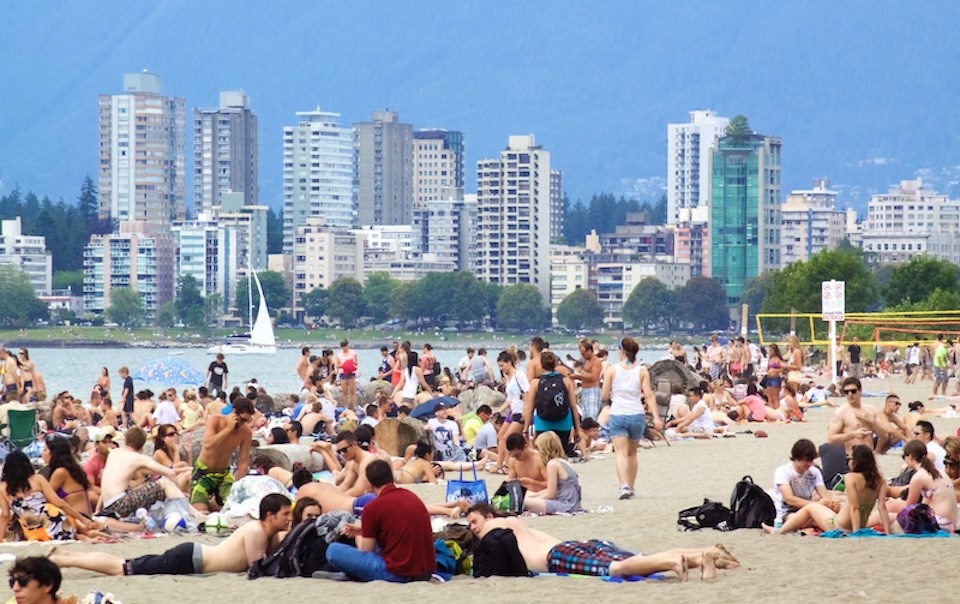Canada's national weather forecaster says dangerously "hot and dry" conditions are expected to continue through the end of July in the Lower Mainland.
While there might be a chance of showers overnight Monday, July 24 into Tuesday, the rest of the month will likely see hot temperatures with no other opportunities for precipitation.
The parched conditions have worsened over several months, with drastically lower rainfall amounts recorded starting back in May. This year the average rainfall amount recorded at Vancouver International Airport (YVR) was 16.1 mm, which was less than 25 per cent of the May average (just under 65 mm), explained Environment Canada meteorologist Johnson Zhong.
June also saw significantly less rainfall, with only 19.9 mm recorded at YVR, which was 37 per cent of the seasonal average (53.8 mm) for the month.
This month, a mere .1 to .2 mm of precipitation has been recorded at the airport. While the month is "typically dry," this is drastically lower than the average amount (35.8 mm) seen at the airport, Zhong said.
A long-term look at the Metro Vancouver weather forecast
While there isn't a great deal of confidence regarding how hot August will be, Environment Canada expects the month will see "normal" precipitation amounts. The month is typically dry, however, with an average of 36.7 mm of precipitation.
Currently, there is a 50 to 60 per cent chance that August will be warmer than average.
The complete fall forecast won't be released until Sept. 1 but the current three-month forecasts indicate that September will be warmer than normal, with 70 to 80 per cent confidence. There is also a 40 to 50 per cent chance it will be drier than normal, Zhong noted.
Scientists at the National Oceanic and Atmospheric Administration recently announced that El Niño has emerged, noting how its effects will gradually strengthen over the coming months.
In Metro Vancouver, the effects of the weather phenomenon typically don't emerge until the winter. El Niño winters are usually "warmer and drier" in the Lower Mainland.
Since 2020, the planet has been in the cold phase (La Niña) of the El Niño-Southern Oscillation (ENSO) climate pattern.
Note: A previous version of this article mistakenly indicated rainfall amounts in cm. The correct measurement is mm.



